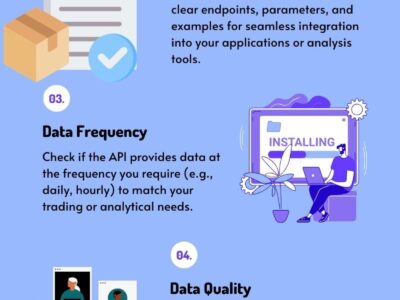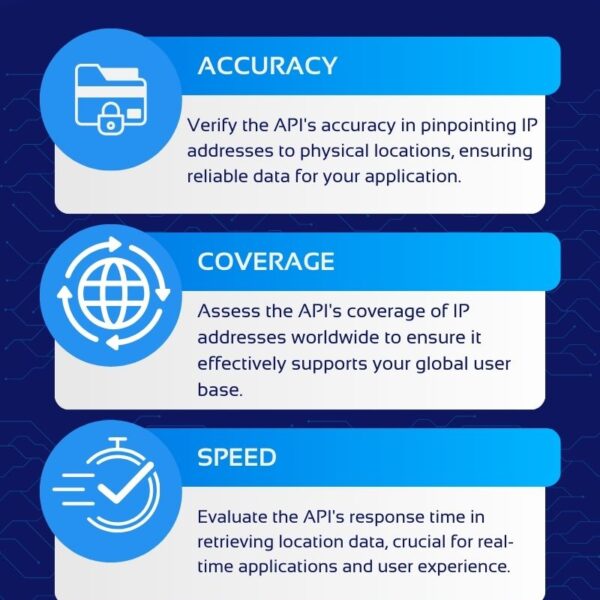In the fast-paced world of finance, having access to real-time stock market data is crucial for traders, investors, and financial analysts. While premium data services offer comprehensive solutions, they often come with a hefty price tag. Fortunately, there are free stock market API that provide real-time data at no cost. These APIs are invaluable for those who need reliable market information without breaking the bank. In this article, we’ll explore some of the best free stock market APIs available, their features, and how you can leverage them to enhance your trading strategies.
Understanding Stock Market APIs
APIs, or Application Programming Interfaces, are tools that allow different software applications to communicate with each other. In the context of the stock market, APIs provide access to a wealth of financial data, including stock prices, historical data, company financials, and more. By integrating these APIs into your applications, you can retrieve up-to-the-minute market information, automate trading strategies, and perform detailed financial analyses.
The Benefits of Free Stock Market APIs
Free stock market APIs offer several advantages:
- Cost-Effective: The most obvious benefit is the cost savings. With free APIs, you can access essential market data without incurring subscription fees.
- Real-Time Data: Many free APIs provide real-time or near real-time data, which is crucial for making timely trading decisions.
- Flexibility: APIs can be integrated into various applications, whether you are developing a mobile app, a desktop application, or a web-based platform.
- Educational Use: For students and hobbyists, free APIs provide a great way to learn about financial markets and develop trading skills without financial risk.
Top Free Stock Market APIs
1. Alpha Vantage
Alpha Vantage is a popular choice among developers for its comprehensive data offerings. It provides real-time and historical data for stocks, ETFs, mutual funds, and cryptocurrencies. The API is easy to use and well-documented, making it ideal for both beginners and experienced developers. While the free tier comes with some usage limits, it is sufficient for most small to medium-sized projects.
2. IEX Cloud
IEX Cloud offers a wide range of financial data, including real-time stock prices, market data, and company information. The free tier provides a generous amount of data, and the API is known for its reliability and speed. Additionally, IEX Cloud offers a sandbox environment for testing, which is a great feature for developers.
3. Yahoo Finance API
The Yahoo Finance API is a well-known resource that provides real-time and historical data for a vast array of financial instruments. While it is not officially supported by Yahoo, many developers find it to be a reliable and easy-to-use option. The API is particularly useful for fetching current stock prices and historical market data.
4. Twelve Data
Twelve Data offers real-time and historical data for stocks, forex, and cryptocurrencies. The API is designed to be developer-friendly, with clear documentation and robust support. The free tier allows for a generous number of requests per month, making it suitable for most individual users and small businesses.
5. Financial Modeling Prep
Financial Modeling Prep provides extensive financial data, including real-time stock prices, company financials, and economic indicators. The API is free to use with a high daily request limit, making it an excellent choice for those who need detailed financial information.
How to Use Free Stock Market APIs
To get started with a free stock market API, follow these steps:
- Choose an API: Select an API that best meets your needs. Consider factors such as the types of data offered, usage limits, and ease of integration.
- Sign Up: Most APIs require you to create an account and obtain an API key. This key is used to authenticate your requests.
- Read the Documentation: Familiarize yourself with the API documentation. This will help you understand how to structure your requests and handle the responses.
- Integrate the API: Use your preferred programming language to integrate the API into your application. Most APIs provide sample code to help you get started.
- Test and Deploy: Test your integration thoroughly to ensure it works as expected. Once you are satisfied, deploy your application.
Conclusion
In the digital age, access to real-time stock market data is a critical component of successful trading and investment strategies. Free stock market APIs provide a cost-effective way to obtain this data, enabling traders, investors, and developers to make informed decisions without incurring significant expenses. By leveraging these APIs, you can stay ahead of the market and enhance your financial analysis capabilities.
FAQs
What is a stock market API?
A stock market API is an interface that allows you to retrieve financial data such as stock prices, historical data, and company information programmatically.
Are free stock market APIs reliable?
Yes, many free stock market APIs are reliable and provide accurate data. However, it is important to review the API’s documentation and user reviews to ensure it meets your needs.
How can I start using a free stock market API?
To start using a free stock market API, you need to choose an API provider, sign up for an account, obtain an API key, and integrate the API into your application using the provided documentation.
Can free stock market APIs be used for real-time trading?
While many free stock market APIs provide real-time or near real-time data, they may have usage limits or latency that could affect high-frequency trading. For critical trading applications, consider the specific requirements of your strategy.
Are there any limitations to using free stock market APIs?
Free stock market APIs often come with limitations such as usage limits, fewer data points, or reduced update frequencies compared to paid versions. It’s important to understand these limitations when planning your application.











